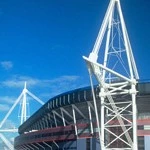- 3 Minute Read
- 20th November 2008
Glasgow City Guide
Population & Landmark…
Glasgow is the largest city in Scotland and third most populous in the UK. The population of the city was 580000 in 2007 and 2.3m for Glasgow and surrounding towns of the conurbation, 41% of Scotland's population.
Glasgow has seen more changes in the past 2 decades than almost any other British city. From a declining industrial centre with widespread pessimism about its future, Glasgow has been transformed into a forward-looking city and one of the hippest spots in Europe.
Today, Glasgow is an important financial centre. The Financial district is located in the western edge of the city centre, occupying the areas of Blythswood Hill and Anderston, known officially as the International Financial Services District (IFSD), although often irreverently nicknamed by the contemporary press as the “square kilometre” or “Wall Street on Clyde”.
Economy…
 Glasgow has the largest economy in Scotland and is at the hub of the metropolitan area of West Central Scotland. Glasgow's economy has seen a significant growth of tertiary sector industries such as financial and business services, communications, creative industries, healthcare, higher education, retail and tourism.
Glasgow has the largest economy in Scotland and is at the hub of the metropolitan area of West Central Scotland. Glasgow's economy has seen a significant growth of tertiary sector industries such as financial and business services, communications, creative industries, healthcare, higher education, retail and tourism.
Between 1998 and today, the city’s financial services sector grew at a rate of 30%, making considerable gains on Edinburgh, which has historically been the centre of the Scottish financial sector.
Today, the city is one of Europe's sixteen largest financial centres. A growing number of Blue chip financial sector companies have significant operations or headquarters in Glasgow. The city still retains a strong link to the manufacturing sector which accounts for well over 60% of Scotland’s manufactured exports, with particular strengths in shipbuilding, engineering and publishing.
Office Rental Levels…
 According to the Jones Lang LaSalle annual Glasgow City Report, rental levels in the city are likely to accelerate from the current standing at £25 per sq ft to £28.5 per sq m in 2008 and are predicted to reach £339 per sq m by 2012. Rental levels also vary considerably from £15 to £35 per sq ft, a factor of changing licensed circuits and the clear difference between the corporate and private markets.
According to the Jones Lang LaSalle annual Glasgow City Report, rental levels in the city are likely to accelerate from the current standing at £25 per sq ft to £28.5 per sq m in 2008 and are predicted to reach £339 per sq m by 2012. Rental levels also vary considerably from £15 to £35 per sq ft, a factor of changing licensed circuits and the clear difference between the corporate and private markets.
Total office take up in 2007 was 808930 sq ft, a 28% increase on the previous year, and 63% ahead of the ten-year average of 494690 sq ft. The professional services sector was the most active in terms of office take up in 2007, accounting for 30%, closely followed by the financial services sector accounting for 27% of occupier take up in the city centre.
All these figures clearly reveal that lettings in Glasgow’s office market are significantly ahead of the ten-year average and will result in increased competition for available property.
Transport…
 Glasgow has a large urban transport system, mostly managed by the Strathclyde Partnership for Transport (SPT). The city has the most extensive urban rail network in the UK outside of London with rail services travelling to a large part of the West of Scotland. Glasgow Central is the terminus of the 401 mile long West Coast Main Line from London Euston.
Glasgow has a large urban transport system, mostly managed by the Strathclyde Partnership for Transport (SPT). The city has the most extensive urban rail network in the UK outside of London with rail services travelling to a large part of the West of Scotland. Glasgow Central is the terminus of the 401 mile long West Coast Main Line from London Euston.
The city is the focus of Scotland’s trunk road network and has many road connections to other cities. The main M8 motorway passes through the city centre, and connects to the M77, M73, and M80 motorways.
Glasgow is also served by two international airports and a seaplane terminal: Glasgow International Airport in Paisley in the west of the city, Glasgow Prestwick International Airport and Glasgow Seaplane Terminal, by the Glasgow Science Centre on the River Clyde.
The Tourism, Attractiveness of the city…
 Glasgow offers easy access to some of Scotland’s beautiful mountains, glens, lochs and coastline.
Glasgow offers easy access to some of Scotland’s beautiful mountains, glens, lochs and coastline.
The cultural and artistic fields are 2 strengths of Glasgow. The city possesses a world-class art gallery and several excellent museums that attract thousands of people every year. In 1999, Glasgow was awarded the title of UK City of Architecture and Design, which attest to the great variety of high-quality design within the city, with Victorian, Regency, art nouveau and ultra-modern styles all represented.
Business travellers to Glasgow should find no surprises in the way in which business is carried out. The atmosphere is a little more relaxed than in cities such as London, although normal standards of business attire apply and punctuality is important. Most companies operate during standard business hours of Monday-Friday 0900-1700.
Useful Links…
Glasgow Guide: www.cityguide.travel-guides.com
Citizen's Advice Bureau: www.cas.org.uk
Chamber of Commerce: www.glasgowchamberonline.org
